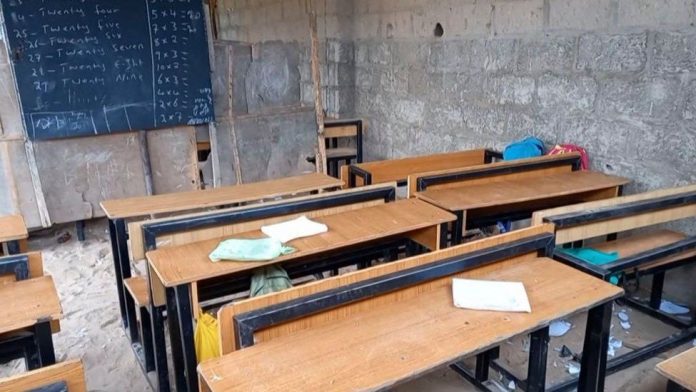In order to achieve the goals of the Sustainable Development Goals (SDGs), especially Goal 4 which touches on education, every effort must be made to ensure the education of Ghanaian children is done properly, Rector of the United Nations University on Africa Professor Tshilidzi Marwala, has said.
Prof Marwala asked all stakeholders including parents, community leaders, teachers, the government, and the political class to play their roles effectively in the education of the children.
Speaking in a recorded interview with Johnnie Hughes, aired on the Sunrise show on 3FM Thursday, May 25, he described the financing of education in Ghana as heartbreaking and urged the government to step up the efforts.
“It is absolutely heartbreaking, we need to do something about our education. I will go back to personal responsibilities, governments and the political class have responsibilities towards education, they must finance it very effectively, and teachers must be in class. This idea of teachers not showing up on Mondays must come to an end.
“We need to hold them accountable for teaching our young people. But we as parents, and community leaders must actually be on the lookout as to what is happening in our villages, and what is happening in our schools, so that we can actually be able to meet this issue of SGD 4.”
Prof Marwal further said there was an urgent need for stakeholders to discuss the best mechanisms by which the attainment of SGDs can be financed.
He revealed that although the outbreak of the Covid pandemic has slowed the attainment of the SDGs, the structure of the global economy is also a factor that is impeding the efforts.
2030 was set as the target for the attainment of the goals under the SDG, meaning the stakeholders have seven years away from the deadline to achieve all the goals.
Asked how well the world is doing in trying to achieve the targets, Prof Marwala said “Not very good. We do know that the SDGs were introduced by the great son of Ghana Mr Kofi Annan. The SDGs were introduced in 2015. Almost the bulk of the SDGs, only 12 to 15 percent were on track, the rest, we are lagging behind the targets.
“So, now, the question is, why? Of course, we have got Covid-19 as one of the things we can blame but the structure of the global economy is very important. we need to come to the table and ask, what is the mechanism we can be able to use to finance the attainment of the SDGs?
“It goes back to the issue of reform of the financial architecture whether it is global, continental or regional.”
The Sustainable Development Goals or Global Goals are a collection of seventeen interlinked objectives designed to serve as a “shared blueprint for peace and prosperity for people and the planet, now and into the future”.
The SDGs are: no poverty; zero hunger; good health and well-being; quality education; gender equality; clean water and sanitation; affordable and clean energy; decent work and economic growth; industry, innovation and infrastructure; reduced inequalities; sustainable cities and communities; responsible consumption and production; climate action; life below water; life on land; peace, justice, and strong institutions; and partnerships for the goals.
The SDGs emphasize the interconnected environmental, social and economic aspects of sustainable development by putting sustainability at their center.


